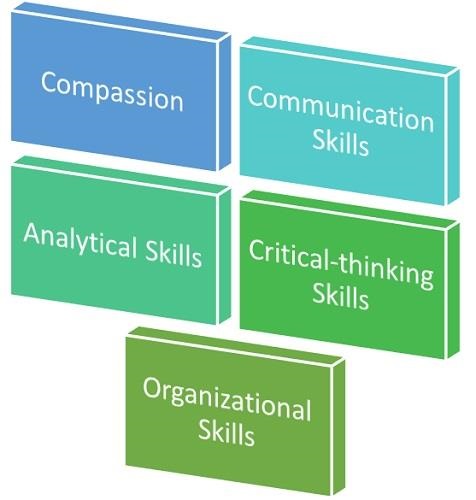Although many counseling roles require a master’s degree, you need more than just an education to succeed in this field. When you go for a job interview in this field, prospective employers won’t only be interested in the skills you learned in college. They will also want to find out what you have done or would do in given scenarios working with clients and get a glimpse of the traits you possess that will make you a good counselor.
Practice Scenario-Based Interview Questions
The core of a job interview is the question and answer-based dialogue between interviewer and interviewee. Practicing the answers to common interview questions can serve the dual purpose of helping job candidates feel more prepared for and confident about the interview and allowing them to come up with a response that addresses the question fully without rambling.
Some of the most common interview questions include:
- “What are your greatest strengths?”
- “Why are you interested in this role?”
- The open-ended prompt, “Tell me a little about yourself.”
IMAGE SOURCE: Pixabay, public domain
Beyond the basics, the types of questions you are most likely to encounter in a job interview depend on your occupation. For example, in highly technical career fields, interviewees are often asked to answer technical questions that relate to the position’s job duties or that show their skills in integral areas like analysis and mathematics. In a field like counseling, candidates are more likely to be asked scenario-based questions. These questions focus on how the applicant has handled a certain situation in the past or how the person would hypothetically respond to that situation.
Some of the questions counselors encounter most often in job interviews include queries about the biggest challenges they have faced with clients, how they would respond to a situation in which a client threatened harm to self or others and how they would address communication issues with clients. Often, established and new counselors will be asked about the extent of their experience counseling individuals, families or groups or using different counseling techniques and therapeutic interventions.
While it’s helpful to be able to conduct a mock interview with a friend or family member, rehearsing answers out loud on your own can also be valuable. Some job candidates like to practice in front of a mirror so they can focus on eye contact and nonverbal cues.
Show the Qualities That Will Make You a Great Counselor
The years of college education you acquired matter, but they’re far from the only factor that affects your future success as a counselor. In fact, much of what it takes to be a great counselor can’t be taught exclusively in the classroom.
The United States Bureau of Labor Statistics (BLS) reports that compassion is among the most important qualities you can have for any kind of counselor or therapist role. If you want to develop a trusting professional relationship with your clients that allows them to confide their problems in you and listen to the insights you have to offer, you need to put forth a caring demeanor. It is important that you find ways to empathize with clients and understand why they may think, feel and act the ways that they do. These are qualities many employers are looking for in the counselors they hire, so it is important to show that you have this trait through your responses to interview questions. When drawing on your experience or talking about hypothetical scenarios, speak respectfully of clients, and don’t forget to include your efforts to understand where they are coming from in the answers you give your interviewer.
Communication skills are just as important in success as a counselor as compassion. After all, no matter how much compassion you may feel for your clients, you need to be able to convey that feeling to your clients for interactions with them to be positive. You need to fully listen to your clients, which in itself is a difficult skill to master, and to convey your professional knowledge to them in a way that is helpful and reassuring without coming across as condescending. To a large degree, you demonstrate your communication skills to your interviewer not through acing a particular question, but instead through interacting with them throughout the interview in ways that show that you are carefully listening to questions and providing thoughtful and perceptive responses.
Other qualities that you might rely on as a counselor or therapist include analytical, critical-thinking and organizational skills to determine clients’ needs and identify strategies or treatment plans to meet them.
Additional Resources
How Do I Prepare for a Counseling Degree While in High School?
What Is the Salary Potential for Someone With a Counseling Degree?


